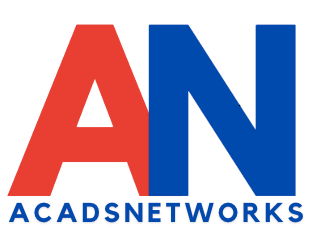Undergraduate Students purses higher education in Canada because it provides unparalleled opportunities for growth both personally and professionally, a number of students are finding the ever-increasing tuition costs, living, and course material expenses out of their reach.
The bottom line is that grants provide students from all walks of life with an important source of free money that puts higher education within reach.
Grants and Why Are They Essential for Undergraduate Students?
Grants are the funds allocated by government agencies, institutions or private ones to students for bearing the expenses related to education. They do not accumulate interest nor do they need to be repaid like loans and hence are preferred by every student in need.
Major Advantages of Grants
- Debt Free Funding: It provides the students with funds without placing a debt burden.
- Equality of Opportunity: It has leveled the playing field to include participation by students from poor family backgrounds.
- Higher Completion Rates: Those who obtain funding are more likely to finish.
- Targeted Group Support: Most grants have particular targeted groups that include the Indigenous student, a student with disability issue, and/or particular fields of studies that the nation needs or are high demand fields.
1.3 Problems that Grants Solve
- High Tuition Fees: Average annual undergraduate tuition reaches up to 6,800 dollars per annum.
- Textbook, Housing, and Transportation Costs
- Balancing Work and School for Low-Income Students
Types of Undergraduate Students Grants Available in Canada
Undergraduate grants can be divided into needs or demographics, each having a particular objective it tries to solve. Let us discuss these grants in detail.
1. Federal Grants
Government of Canada has a number of undergraduate grants for students. The various grants are administered by the Government through the Canada Student Loans Program (CSLP). These grants are granted to the eligible student in need upon application for financial assistance.
a. Canada Student Grant for Full-Time Students (CSG-FT)
- Target: Students enrolled full-time in an undergraduate program who demonstrate financial need.
- Grant Amount: Up to $6,000 per academic year.
- Key Details: Eligibility is determined through provincial student aid applications. No separate application is required.
b. Canada Student Grant for Part-Time Students (CSG-PT)
- Target: Part-time students who, because of financial constraints, are unable to study full-time.
- Grant Amount: Up to $3,600 per academic year.
- Key Details: Provides assistance to students who must combine studying with work or family responsibilities.
c. Canada Student Grant for Students with Disabilities (CSG-D)
- Who It’s For: Students with documented permanent disabilities.
- Grant Amount: Up to $4,000 per academic year.
- Additional Assistance: includes funding for services, such as interpreters or note-takers, or other assistive devices.
d. Canada Student Grant for Students with Dependents
- Who It’s For: Students with children who are under 12 years old.
- Grant Amount: $400 per month of study, per dependent child.
2. Provincial and Territorial Grants
Each province and territory distributes grants as part of their student aid programs, often targeting needs specific to that region.
a. Ontario Student Assistance Program OSAP Grants
For Who: Ontario residents studying at the undergraduate level.
Grant Amount: Varies based on need
Key Features: Usually taken out with loans; non-repayable grants are issued first.
b. Alberta Student Aid Grants
- For Who: Undergraduate students attending school in Alberta.
- Key Grants:
– Low-income grants.
– Indigenous grants.
c. British Columbia Access Grants
- Who It’s For: Undergraduate students attending programs at designated B.C. institutions.
- Grant Amount: Tuition for eligible students.
3. Indigenous Student Grants
There are many different grants available to Indigenous students throughout Canada pursuing post-secondary education.
a. Post-Secondary Student Support Program (PSSSP):
- Funded by Indigenous Services Canada.
- Tuition, books, and living expenses covered.
b. Indigenous Skills and Employment Training (ISET) Program:
- Focused on career-directed education.
- Vocational training and undergraduate programs covered.
4. Specialized Field-Specific Grants
a. Natural Sciences and Engineering Research Council Awards
- For: Students taking undergraduate studies in STEM-related courses.
- Amount: Varies; usually covers research expenses.
b. Canadian Nurses Foundation Scholarships and Grants
- For: Students studying nursing.
- Need: This is to ensure there is no shortage of health workers.
c. Apprenticeship Incentive Grant (AIG)
- For: Undergraduate students studying trades.
- Amount: $1,000 per year, to a maximum of $2,000.
How to Apply for Undergraduate Students Grants in Canada
Step 1: Identify Suitable Grants
Research grants that align with your eligibility. Use resources like:
- Government portals (Canada.ca, NSLSC).
- University financial aid offices.
- Online grant databases (ScholarshipsCanada, GrantMe).
Step 2: Check Eligibility Requirements
Each grant has specific eligibility criteria, such as income thresholds, academic performance, or community involvement.
Step 3: Prepare Required Documentation
- Proof of enrollment.
- Income statements (e.g., tax returns).
- Disability certification (if applicable).
- Personal statement or essays (if required).
Step 4: Submit Applications
- Federal Grants: Apply through the provincial student aid portal.
- University Grants: Submit via the institution’s financial aid office.
Step 5: Monitor Application Status
As an undergraduate students you should follow deadlines and promptly respond to requests for additional documentation
How Grants Affect Undergraduate Students Academic Life
Understanding the broader implications of receiving grants as an undergraduate students will go a long way in placing students in a better position to make informed decisions about applying for and managing their education.
1. Reducing Student Loan Dependence
Grants can reduce or totally remove loans, saving students from many years of loan repayments.
With the soaring average student debt to about $26,000 upon graduation in Canada, grants play a vital role in securing financial stability.
2. Allowing Academic Excellence
By getting rid of the financial constraints, grants enable students to devote all their energies toward academics, research, and co-curricular activities.
Students can also invest more time in internships and volunteer work, building a better resume to start their careers with.
3. Diversifying Communities
Grants that target groups, such as Indigenous students or students with disabilities, promote representation and inclusion into higher learning.
Financial aid ensures that socio-economic status is not a limiting factor to quality education.
4. Encouraging Retention and Graduation Rates
Research has shown that, with the help of financial aid, the likelihood of a student completing college in record time increases.
Grants offered on the basis of performance in school encourage the student to keep their GPAs high.
How to Increase Your Chances with Grant Opportunities as an Undergraduate Students
- Apply to Many Grants: The wider the application, the higher the chances of being funded.
- Keep Your Grades Up: High grades help in the eligibility for merit-based grants.
- Do Community Service: Volunteering can make your grant application profile better.
- Seek Professional Advice: Financial aid advisors may be necessary to help you navigate through complex applications.
FAQs About Undergraduate Students Grants in Canada
Q1: Can I apply for both federal and provincial grants?
Yes, applications for federal grants often include eligibility for provincial grants.
Q2: Suppose I am not eligible for grants because of high family income?
Look for scholarships or bursaries that take into consideration merit or extracurricular involvement instead of income.
Q3: How long does it take to get the grant money?
Processing times vary, but most fall between 4 to 8 weeks after application approval.
Q4: Can I lose my eligibility for a grant during studies?
Yes, failing to meet academic requirements or falling below the required course load can result in the loss of funding.
Q5: Must I repay grants if I fail to complete my program as an undergraduate students?
In most cases, you are not repaying grants. However, the terms are different, and some of them might require you to repay them if conditions are not met.
Conclusion
Grants are a vital part of financial aid for undergraduate students in Canada, providing debt-free ways to reach academic and professional goals. From federal and provincial programs to niche grants for women, Indigenous students, and newcomers, the opportunities are great but take proactive efforts to secure.
By extending your search, applying with strategy in mind, and using the resources available, you can make a dent in the financial obstacles toward your education. The key to all of this is simply to start early, stay organized, and use every resource possible to maximize funding.


